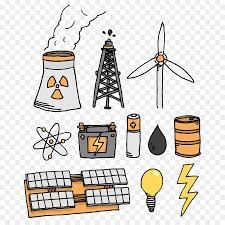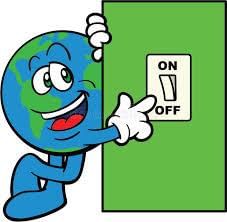Class 2 Exam > Class 2 Notes > Year 2 Science IGCSE (Cambridge) > Electricity
Electricity | Year 2 Science IGCSE (Cambridge) - Class 2 PDF Download
Introduction to Electricity
Electricity is a type of energy we use to power our electronic devices and light up our homes. It is essential for many things we use every day, like TVs, lights, and even amusement park rides.
Sources of Electricity
- Fossil Fuels:
- Natural resources like coal, gas, and oil are found underground.
- Power plants burn these fuels to create steam.
- Steam turns turbines (like big egg beaters), which generate electricity.
- Example: Power plants use coal to create electricity for cities.
- Wind Energy:
- Wind turbines capture wind energy.
- Wind turns blades, which spin a generator to make electricity.
- Example: Wind farms use wind to generate electricity for homes.
- Hydroelectricity:
- Dams collect water, creating pressure.
- Pressurized water turns turbines, generating electricity.
- Example: Dams use water to produce electricity for towns.
- Solar Energy:
- Solar panels capture sunlight.
- Panels convert sunlight into electricity.
- Example: Solar panels on rooftops power homes and schools.

Transporting Electricity
- Electricity travels through cables and wires from power plants to homes, schools, and workplaces. It is ready for us to use whenever we need it.
Saving Electricity
- It's important not to waste electricity. Remember to turn off lights and devices when they're not in use to save energy.

Conclusion
Understanding where electricity comes from helps us use it wisely. We can use different natural resources like fossil fuels, wind, water, and the sun to create electricity. By saving electricity, we can help protect our environment and ensure there's enough energy for everyone.
Question for ElectricityTry yourself: Which natural resource is used to create electricity in power plants by burning it to generate steam?View Solution
The document Electricity | Year 2 Science IGCSE (Cambridge) - Class 2 is a part of the Class 2 Course Year 2 Science IGCSE (Cambridge).
All you need of Class 2 at this link: Class 2
|
6 videos|24 docs|8 tests
|
FAQs on Electricity - Year 2 Science IGCSE (Cambridge) - Class 2
| 1. What is electricity? |  |
Ans. Electricity is the flow of electrical power or charge. It is a form of energy that powers our homes, schools, and businesses.
| 2. How is electricity generated? |  |
Ans. Electricity can be generated in various ways, such as through the use of fossil fuels, nuclear power, hydroelectric power, wind power, and solar power.
| 3. How can we conserve energy at home to reduce electricity consumption? |  |
Ans. We can conserve energy at home by turning off lights when not in use, using energy-efficient appliances, insulating our homes, and reducing air conditioning and heating usage.
| 4. What are some common electrical safety tips to follow? |  |
Ans. Some common electrical safety tips include avoiding overloading electrical outlets, keeping water away from electrical appliances, using appliances with intact cords and plugs, and hiring a professional for electrical work.
| 5. Why is energy conservation important? |  |
Ans. Energy conservation is important because it helps reduce our impact on the environment, saves money on energy bills, and ensures a sustainable future for generations to come.
Related Searches
















